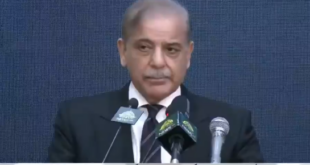
The ongoing policy-level talks between the Government of Pakistan and the International Monetary Fund (IMF) are currently focused on addressing circular debt in the power sector. Currently, deliberations on Federal Board of Revenue (FBR) revenue, agricultural tax, and property tax are also in progress.
According to sources from the Power Division, the department is set to present its detailed strategy for eliminating circular debt to the IMF. The proposed plan outlines borrowing Rs 1,200 billion from local banks to mitigate the circular debt crisis.
Of this amount, Rs 300 billion will be allocated for immediate settlement, while approximately Rs 600 billion will be cleared by waiving late payment surcharges. To repay these bank loans, the government plans to impose a surcharge of Rs 2.80 per unit on electricity bills, to be collected over a five-year period.
In a significant development, the IMF has accepted the government’s proposal to reduce electricity prices, with a final decision expected next month. However, the Fund has rejected the Ministry of Energy’s plan to amend the NEPRA Act. Sources indicate that electricity base rates may be reduced by Rs 1 to Rs 2 per unit, with both NEPRA and the Ministry of Energy now having the authority to implement these reductions.
The IMF has also expressed concerns regarding the delay in the privatization of DISCOs (power distribution companies), emphasizing that substantial improvements in the power sector are unattainable without enhancing the efficiency of these entities. During the negotiations, the IMF rejected a proposal to remove GST from electricity bills as a means of reducing costs for consumers. Similarly, the IMF declined the government’s request to extend the winter relief package for the industrial and agricultural sectors for the entire fiscal year.
Privatization Program
The government has assured the IMF that it is committed to privatizing five to seven state-owned enterprises, including Pakistan International Airlines (PIA). According to sources, the government aims to sell PIA by July, although the fate of the Roosevelt Hotel in New York remains uncertain. Notably, the New York City Government has already issued a notice for the early termination of the hotel’s lease agreement, valued at $228 million.
Officials briefed the IMF on the privatization program, stating that efforts are underway to sell five to seven state entities as soon as possible. These include PIA, three financial institutions, and three power distribution companies. The government is optimistic about completing the sale of Zarai Taraqiati Bank Limited (ZTBL) by November. Additionally, the Cabinet Committee on Privatization (CCOP) has been tasked with determining whether to sell the Roosevelt Hotel outright or lease it under a joint agreement.
Agricultural Income Tax
Sources have revealed that the government has submitted a report to the IMF detailing recent legislation on agricultural income tax. Under this legislation, tax rates on agricultural income have been aligned with those imposed on the corporate sector. All four provinces have completed the necessary legislation, and the revised tax structure has been uniformly implemented.
The new taxation framework stipulates the following:
- Annual income up to Rs 600,000 – No tax.
- Annual income between Rs 600,000 and Rs 1,200,000 – 15% tax.
- Annual income above Rs 1,200,000 – Rs 90,000 fixed tax + 20% tax on income exceeding Rs 1,200,000.
- Annual income between Rs 1,600,000 and Rs 3,200,000 – Rs 170,000 fixed tax + 30% tax on income exceeding Rs 1,600,000.
- Annual income between Rs 3,200,000 and Rs. 5,600,000 – Rs 650,000 fixed tax + 40% tax on income exceeding Rs 3,200,000.
- Annual income above Rs 5,600,000 – Rs 1,610,000 fixed tax + 45% tax on income exceeding Rs 5,600,000.
With these extensive negotiations and economic strategies, the government remains focused on securing IMF support while implementing crucial financial reforms.
 BeNewz
BeNewz




